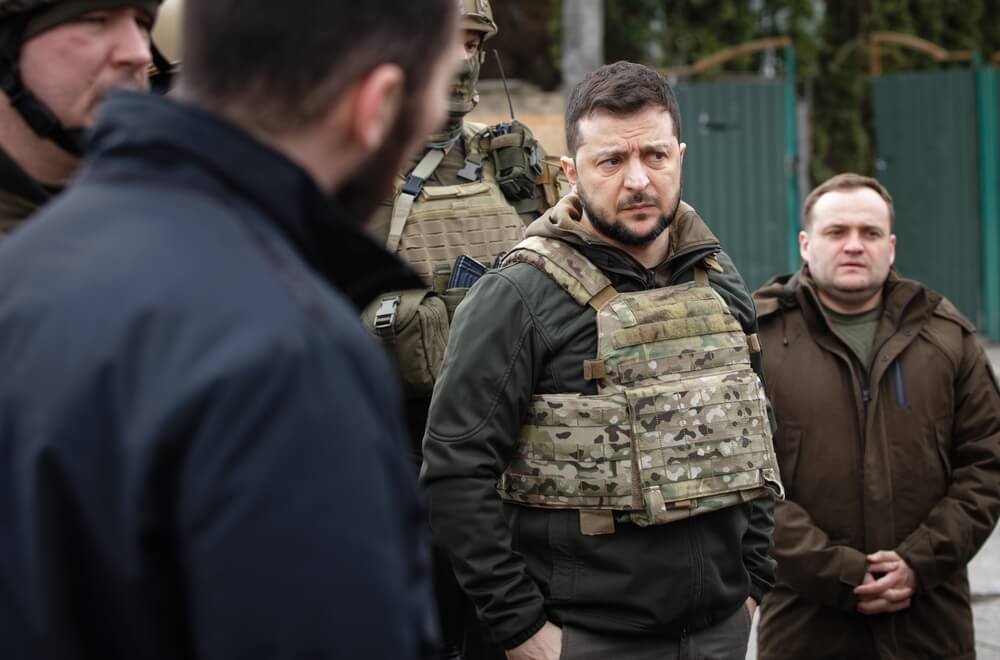The call for peace during the Olympic Games has failed in modern times.
Not only have wars not stopped at the time of the Olympic Games in the last 128 years, but conflicts have postponed sporting competitions three times: in 1916, 1940, and 1944.
The attempt to incorporate a custom from ancient Greece into the modern Olympic Games will undoubtedly fail at the forthcoming Olympic Games in Paris.
It was a somewhat romanticised attempt by French President Emmanuel Macron, the first host of the forthcoming Olympic Games, to call for peace in Ukraine during the Games.
In a way, it was an expected, almost obligatory gesture by any head of state from the host country of the Olympic Games to call for a cessation of hostilities, even if only temporarily.
Even President Macron probably did not believe that his proposal would be successful, but the duty of hosting the Games obliged him to do so.
Benefits from the talks with Xi Jinping
Even though the Olympic truce was bound to fail from the start, it served the French president as a crucial tactical tool.
The initiative fell on very fertile ground during Chinese leader Xi Jinping's recent visit to Paris.
“China calls for a worldwide truce during the Olympic Games", said Xi at a joint press conference in Paris, after long talks with the French leader.
Appeals for peace, although without particularly specific initiatives, are an important part of Xi's diplomacy
Appeals for peace, although without particularly specific initiatives, are an important part of Xi's diplomacy, especially in connection with the crises in Ukraine and the Middle East.
As a result, Macron's call for peace during important talks with Xi in Paris functioned as a point of agreement for at least some perspectives, regardless of the fact that no real outcome would emerge from them.
In France, there was also some belief that the shared ambitions for establishing an Olympic peace would encourage Xi to influence Vladimir Putin in this direction during his visit to Beijing.
Strong arguments from Zelensky
However, this failed, and Putin rejected the initiative while still in Beijing. He used it to attack the heads of the International Olympic Committee, which had banned Russian athletes from participating in the Games in Paris.
So not only was there no room in Beijing for the talk about peace during the Olympic Games, but there was also no pressure from China on Putin to possibly accept participation in the major peace conference on Ukraine, which will take place in Switzerland in mid-June.
Volodymyr Zelensky, the Ukrainian leader, ultimately rejected President Macron's initiative. In his case, there were very specific arguments that related exclusively to the ongoing war, without any diplomatic excuses.
 A truce would hand an advantage to Moscow by giving it time to move around troops and artillery - Volodymyr Zelensky
A truce would hand an advantage to Moscow by giving it time to move around troops and artillery - Volodymyr Zelensky
A truce would hand an advantage to Moscow by giving it time to move around troops and artillery, Zelensky told AFP.
Indeed, even in the event of a firmer agreement, there is no reason to believe that Russia would uphold the truce during the Olympics.
Since the start of the aggression against Ukraine, Moscow has shown complete autism towards any peace proposal, but even before that, it lost credibility by persistently asserting that it would not carry out aggression.
And in terms of timing, a truce from July 26 to August 11 during the Paris Olympics is completely unacceptable to Moscow.
Moscow has now launched an offensive in the north of Ukraine, but more than that, major personnel changes in the Kremlin after Putin's re-election as president point to its reluctance to start peace talks soon.
The appointment of experienced economist Andrey Belousov as defence minister reflects Moscow's desire to balance its war spending with the economy, anticipating that the war situation will continue for a long time.
Balancing French politics
Macron's request for a truce during the Olympics was considered to be a kind of compulsory task for a country that will be hosting athletes from all over the world.
At the same time, it had no chance of success, and it did not seem as if Paris was actually interested in it.
President Macron needs to strike a balance because of the forthcoming European Parliamentary elections in early June
The call for a truce allowed President Macron to strike some kind of peace balance compared to the more hawkish position on the war in Ukraine that he has displayed in recent months, in particular by mentioning the possibility of sending troops to the Ukrainian front.
President Macron also needs to strike a balance because of the forthcoming European Parliamentary elections in early June, where Marine Le Pen's far-right party, which is currently leading the popularity polls, will be the main rival for his candidates.